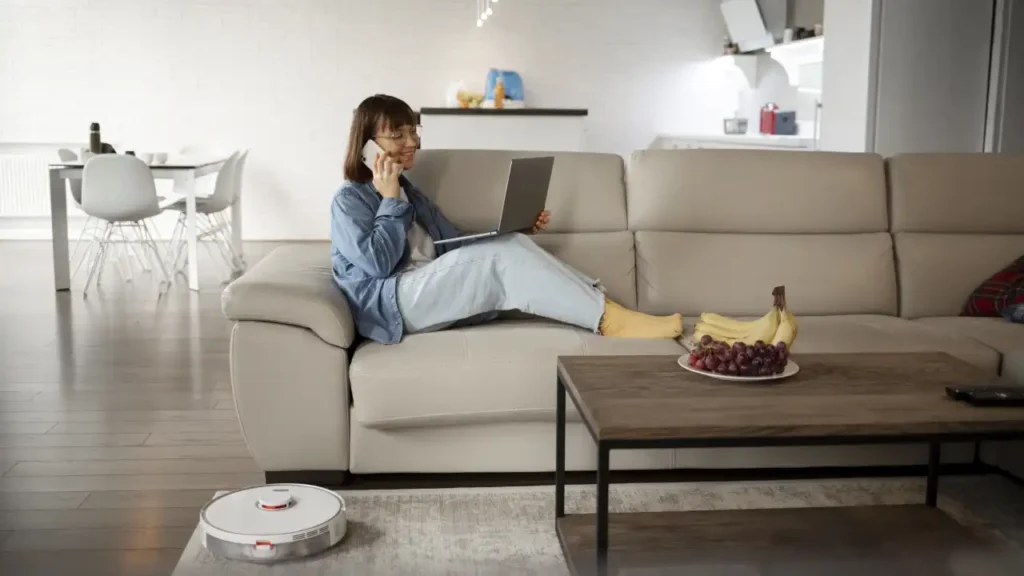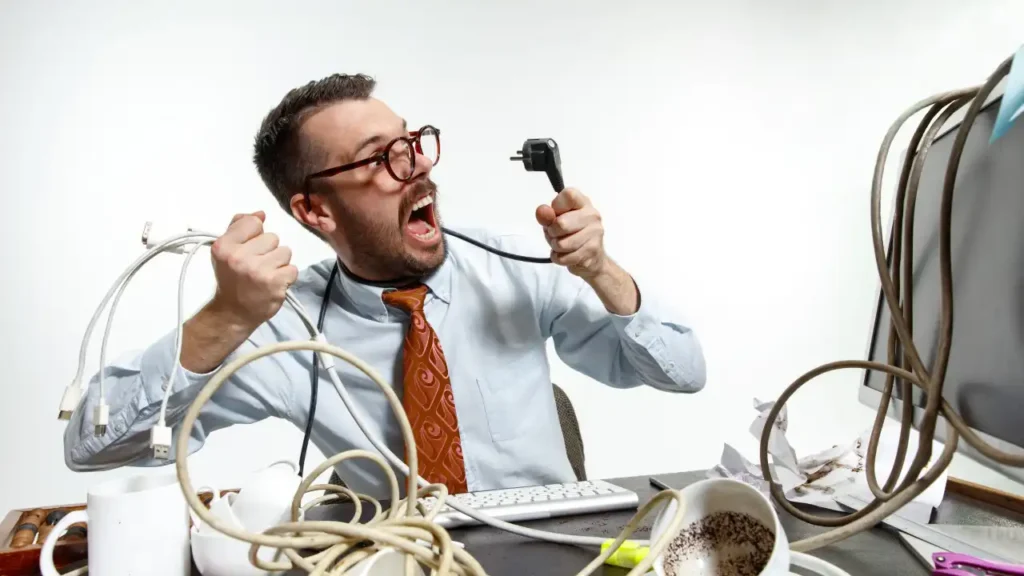What is the Present Perfect Tense?
I remember when I was at school and the subject of the Present Perfect tense came, my teachers would say that it was the most difficult tense ever. It sounded like a real threat and I perceived this tense as a kind of a monster. I was afraid I wouldn’t be able to understand it, in Polish grammar we don’t have such a tense, so I didn’t have the point of reference. It took me some time to realise that the Present Perfect tense is not as black as it is painted. After doing many exercises, analysing many sentences and examples, finally I got it. Now, I’ll try to explain everything that concerns the Present Perfect tense to you.
The general idea of Present Perfect can be shown on a mathematical equation, past + present = Present Perfect. It means that some situation that happened in the past is somehow connected with the present situation. For example, something that happened in the past has some effects or results on the present situation. See the examples:
- I cleaned my room an hour ago. (past) + My room is clean and fresh now. (present) = I have cleaned my room (Present Perfect)
Instead of two sentences you can use only one. The activity that you did in the past, you cleaned your room, has the effect on the present situation. Your room is now clean and fresh. The action that was done is the past links to the present and that’s the Present Perfect tense. That’s the main idea of Present Perfect. Below I’ll present you more detailed Present Perfect uses.

Image by Freepik
When to use Present Perfect?
There are a few Present Perfect uses and today I would like to mention about five of them. In fact, all these five uses come down to one common issue, past + present, but I would like to describe you some aspects in details so that you can get better understanding of this tense. I’m sure that thanks to it and some grammar practice you will know when to use Present Perfect.
Effects and Results
The first and the most important use of the Present Perfect tense I have already mentioned in this post. It is a situation that happened in the past but it is still somehow connected with the present. What I mean is that something was done, completed in the past but the effects or results of that activity from the past are visible, noticeable at present, today, now. The exact date or time when the activity took place doesn’t matter here. What matters is its connection with the present. We want to empasise the results. See the examples:
- I have fallen out with my sister. (I quarrelled with my sister in the past (it doesn’t matter when exactly) and now we aren’t talking to each other. Then + now = Present Perfect)
- He has prepared dinner for us. (He finished cooking, for example, a few minutes ago and now the effect of that cooking is on the table. We can see the result of the past action now.)
- Our teacher has taught us when to use Present Perfect. (She showed us the rules some time ago and we understand and we can use it now, at present.)
- You‘ve bought new shoes. How nice. (You bought them, for example, two days ago but the time is not important here. What matters is the fact that now you have new shoes.)
- I‘ve filled up the car. We can go. (I did it a few minutes ago but the time is not essential. What is important is that now the tank is full of petrol. Now we can continue our journey.)
- I have lost my insurance.
- She has learnt the vocab for the test.
- They have done the laundry.
- I‘ve passed my driving test.
- I‘ve done a lot of tasks.
Up to Now
The second use of Present Perfect describes situations or states that began in the past and have continued or have existed up to the present. It’s like a continuation of some situations that started some time ago. Again, past + present = Present Perfect. Here we want to emphasise that something from the past is still going on in the present, now. See the examples:
- I have been a mother for five years. (I gave a birth to my child five years ago and since then, up to now I’ve been a mum.)
- My grandpa has had this car for twenty-five years. (He bought it twenty-five years ago and since then, up to the present, he has had this car. He is still the owner of the car.)
- I haven’t seen her recently. (The last time I saw her was, for example, one week ago. Since that moment, up to now, I haven’t met her at all. The fact of no seeing her is still in the present.)
- I have always believed in you. (Since I remember, since ever I have always believed. I believed in the past and I still believe now. Past + present = Present Perfect)
- I have never wanted to live in a big city. (I didn’t want that in the past and now I don’t want it as well.)
- We‘ve been a couple for five years.
- How long have you had this dog?
- How long have you known about it?
- She has been here since the early morning.
- Don’t worry, he has always been so grumpy.
! Keep in mind that with this use of Present Perfect we normally use stative verbs (not active).
Life Experience
The third use of the Present Perfect tense deals with situations that have happened to you once, several times or never up to now. This is your experience, you want to emphasise that some situations, events happened to you in the past and now these situations, emotions, feelings are known to you. See the examples:
- I have been to Norway. (You were there in the past, it doesn’t matter when, and now you know how the country looks like. You have some memories.)
- We‘ve already seen the movie twice. (You watched it in the past and now you know the story, you know the end, you know the actors, etc.)
- This is the most expensive car I have ever seen. (In the past you didn’t see such an expensive car, up to now. Today, now, it is the first time you have seen something like that. This is also your experience, sth happens for the first time in your life.)
- Have you ever eaten an octupus? (Somebody is asking about your life experience. Did you eat an octupus in the past and is the taste of it known to you now?)
- This is the first time I have done the ironing myself. (You didn’t do that in the past, up to now. Now you know what it looks like, now you have this experience.)
- Have you ever seen a ghost?
- This is the second time I’ve been to Zumba classes.
- We have been to Tokyo four times.
- This is the most touching song I’ve ever heard.
- It has happened to me not once.
Just Completed
The next use of Present Perfect concerns situations which were completed a moment ago. We usually want to express some news and such a sentence is quite often built with a word ‘just’ to emhasise that the situation happened a short time before.
!!! Note that in American English the Past Simple tense is also possible here.
- I‘ve done it! (Something was completed a short time ago.)
- She has just left. (For example, there’s still the smell of her perfume left.)
- She‘s just had a baby! (News is announced.)
- I‘ve just paired my earbuds to my phone! Finally! (You’re announcing some success, news.)
- She has just told me. (Very recent past.)
- I know everything, I have just talked to him.
- They have just got the results.
- He has just said that.
- I‘ve just seen a mouse in the bedroom! Where’s the cat?!
- Have you just pulled a face at me?
Open Time
The last use of the Present Perfect tense I call the ‘open time’. It means that the period of time that we mean has not finished yet. These are words or expressions like: this morning, today, this week, this month, this year, this century, etc.
- I‘ve drunk two cups of coffee today. (Today is still on, you may drink the third one, the time is not finished, closed.)
- Has Elsa called you today? (Maybe she’ll call later, today is still on.)
- The doctor has seen one hundred patients this week. (And the week is not over yet.)
- I haven’t got any fine this month. (This month is still on, the situation may change till the end of the month.)
- We have visited this place twice this year. (This year is still on, we might go there again this year.)
- Have you eaten anything sweet today?
- There hasn’t been any sun this week.
- She hasn’t visited us this month.
- Bill has asked me for money a few times this year.
- My computer has gone down five times this week.

Image by Freepik
Now, when you’ve learnt the Present Perfect Uses put this knowledge into practice. I’ve prepared for you a few online exercises so that, now, you can check how well you understand the material.

